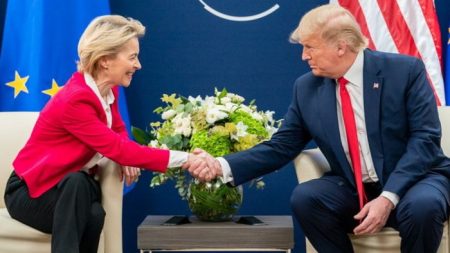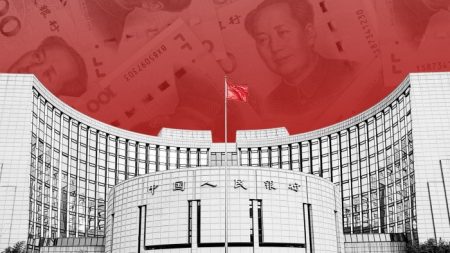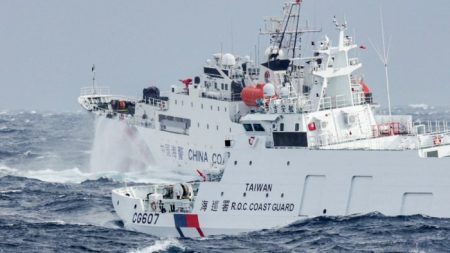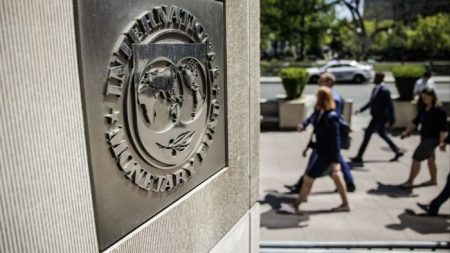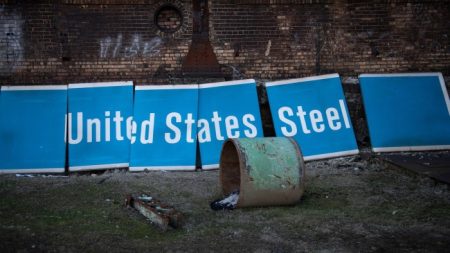Unlock the US Election Countdown newsletter for free
The stories that matter on money and politics in the race for the White House
The decision by the chief prosecutor of the International Criminal Court to apply for arrest warrants against Benjamin Netanyahu and Yoav Gallant is a huge setback for Israel.
The fact that the ICC is also applying for warrants against the leaders of Hamas, in addition to the Israeli prime minister and defence minister, will not cushion the blow. On the contrary, outrage in Jerusalem will be further stoked by the implication that Israel is on the same moral level as a terrorist organisation.
The ramifications of the ICC’s move are enormous. Four immediate questions present themselves. First, what will the domestic impact be in Israel? Second, what impact will this have on the war in Gaza and the wider Middle East? Third, has the ICC over-reached and put its own future on the line? And fourth — and connected to this — how will the US respond to the proposed indictments?
Even the Israeli opposition has responded with outrage to the ICC’s actions. Yair Lapid, a centrist who has stayed out of Netanyahu’s governing coalition, accused the court of “complete moral failure”. This instinct to rally around the flag is unsurprising — very few mainstream politicians in Israel have questioned the conduct of the country’s army in Gaza.
However, the ICC’s move has come at a time when Netanyahu is under growing pressure to step down. Benny Gantz, a leading member of the Israeli war cabinet, said over the weekend that he would leave the government next month — unless Netanyahu came up with a new strategy for the war in Gaza and its aftermath.
Gantz, who has not been indicted, has joined in the generalised Israeli condemnation of the ICC. But many Israelis will be dismayed at the fact that their country is turning into a pariah state. Getting rid of Netanyahu and appointing a new prime minister may become a more attractive option over time, as Israel seeks to rebuild its international status.
An ICC indictment would also have severe practical implications on Netanyahu’s ability to do his job. International travel would certainly become more difficult — since he would be at risk of arrest in the 124 countries that are parties to the Rome Statute that set up the ICC. (These do not include the US, Russia or China.)
Optimists will hope that, in the long run, action by the ICC will convince Israel that its Gaza strategy is “taking Israel into a wall” — as Gantz has put it. That might persuade the next cohort of leaders to take the idea of a two-state solution with Palestine more seriously. The Israelis now know that the path back to international acceptance must involve a new peace process — and the marginalisation of Netanyahu. Many in Israel, including Netanyahu’s supporters and his far-right coalition partners, will continue to argue that any such move would imperil Israel’s survival. But the terms of the current debate within Israel will, at least, now widen.
The question of how the US will respond becomes critical. The White House has said that it does not support indictments by the ICC against Israel, arguing that — “We don’t believe they have the jurisdiction.”
But this is a relatively mild and limited condemnation compared to the full force assaults on the ICC that can be expected to come from the American right and from Donald Trump. John Bolton, Trump’s former national security adviser and a lawyer by training, has demanded that the US should now impose sanctions on the ICC and its judges. That demand is likely to be taken up in Congress and by the Trump campaign.
President Joe Biden will be reluctant to go down the sanctions route. The US is not a party to the ICC. But it does claim to be a supporter of the “rules-based international order” — and has welcomed the ICC indictment of Vladimir Putin, the Russian president. Biden also knows that many in the Democratic party are strongly opposed to Israel’s actions in Gaza — and have even accused the country of genocide. As a result, the US president has every incentive to equivocate, while hoping that Congress does not present him with a bill demanding sanctions against the ICC — which he might have to veto.
The possibility of US sanctions aimed at the ICC underlines the fact that the proposed indictments of Netanyahu and Gallant represent a momentous step by the court — potentially placing its own future on the line. Karim Khan, the court’s chief prosecutor, may have felt that he had little option. If the court is to retain its global legitimacy, it has to be seen to act against war crimes, whoever commits them and wherever they are committed.
However, the ICC unavoidably operates in a political context. It has indicted Putin, with little prospect of bringing him to trial. If Netanyahu is also able to brush aside an indictment, the court risks looking increasingly impotent and irrelevant.
Read the full article here




